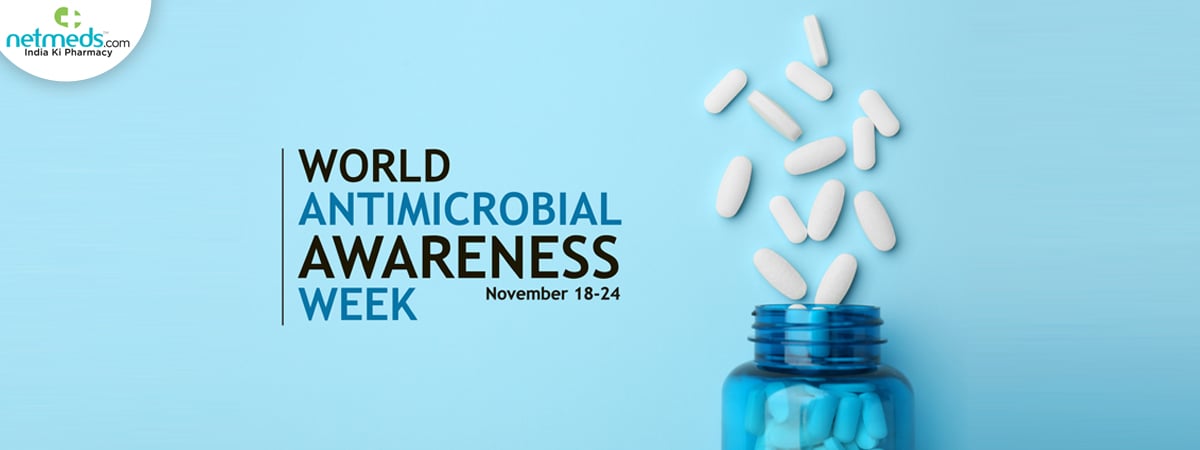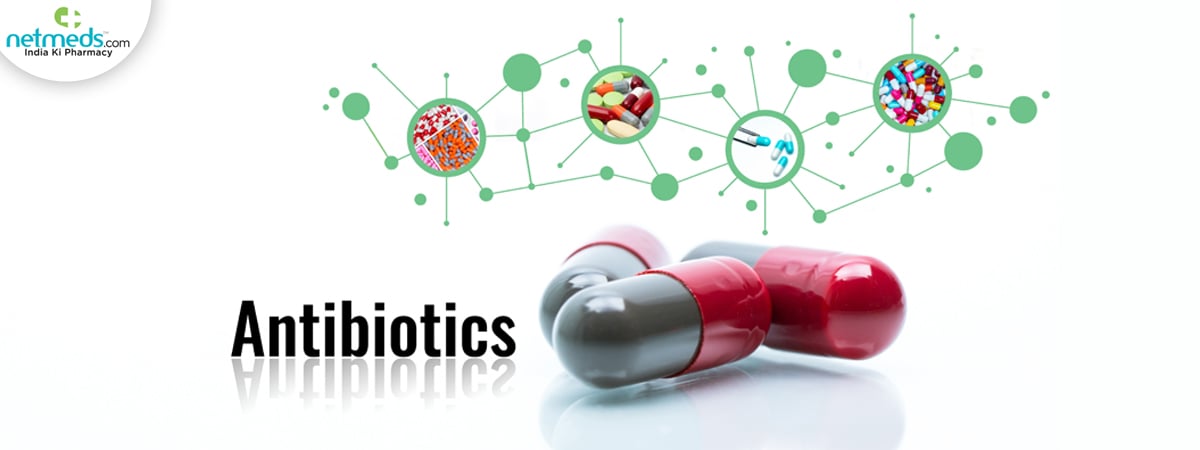Every year, the world observes World Antimicrobial Awareness Week (WAAW) from November 18 to 24 to raise awareness regarding antimicrobial resistance (AMR), one of the world's most pressing health threats of our time. The World Health Organisation (WHO), as part of its yearly campaign, encourages people to use antimicrobials responsibly and discover their rightful position in health care.

World Antimicrobial Awareness Week 2025 reminds us that action should be taken in time to preserve the effectiveness of life-saving antimicrobials. It highlights the importance of understanding when antimicrobials are necessary and when they are not, to help individuals, communities, and healthcare systems prevent the emergence of drug-resistant infections and safeguard public health for future generations.
Also Read: World Antimicrobial Awareness Week: Know About The Significance And Facts
Keep Infectious Diseases At Bay, With Our Best-Selling Handwashes, Sanitizers And Insect Repellents!

World AMR Awareness Week 2025 Theme
The 2025 theme for World Antimicrobial Awareness Week (WAAW) 2025 is "Act Now: Protect Our Present, Secure Our Future", which is mainly about responsibility and urgency. Antimicrobial resistance is escalating rapidly, and we are jeopardising the progress of contemporary medicine. If we do not act, we risk a post-antimicrobial era where minor infections would again prove fatal.
The focus is a global call for the preservation of the effectiveness of antimicrobials now, through judicious use in humans, animals, and agriculture. It is also consistent with the One Health Approach, which recognises the interdependence between human, animal, and environmental health in responding to AMR.
World Antimicrobial Awareness Week 2025 Significance
The significance of WAAW is that it seeks to:
Raise public awareness about the dangers of antibiotic misuse.
Encourage behaviour change among individuals and health workers.
Highlight international and local measures to prevent antimicrobial resistance.
Encourage preventive healthcare practices like hygiene, vaccination, and infection control.
Unite the sectors, medical, veterinary, agriculture, and the environment, to combat AMR.
In short, this campaign is not just about saving lives today; it is about having a healthier future for all living things on earth.
Understanding Antimicrobial Resistance (AMR)
Antimicrobial Resistance (AMR) occurs when bacteria, viruses, fungi, and parasites become resistant to drugs designed to kill them. The result is an infection that takes longer, is spread more easily, and becomes harder or even impossible to treat.
According to the WHO, AMR is one of the top ten global public health threats. Misuse and overuse of antibiotics for agriculture and healthcare are a key driver of resistance. If not checked, AMR would cause 10 million deaths annually by 2050, even ahead of cancer.

When Are Antimicrobials Needed?
Antimicrobials (antibiotics, antivirals, antifungals, and antiparasitics) are needed only when an infection is caused by harmful microbes.
Bacterial Infections
Antibiotics are required for:
Pneumonia, sinusitis, and bronchitis with bacterial involvement
Urinary tract infections
Skin infections like cellulitis
Bone infections (osteomyelitis)
Severe infections like sepsis, bacterial meningitis, and endocarditis
Viral Infections
Antivirals are needed only for specific viruses, such as:
HIV, hepatitis B, hepatitis C
Herpes infections
Severe flu or high-risk COVID-19 cases
Most viral infections get better without any antimicrobial
Fungal Infections
Antifungals are used for:
Ringworm, fungal nails, athlete’s foot
Oral/vaginal yeast infections
Serious fungal diseases in weak immunity
Parasitic Infections
Antiparasitics are needed for:
Malaria
Worm infestations
Amebiasis, giardiasis
They are also used before/after surgery or in severe, life-threatening infections.

When Are Antimicrobials Not Needed?
Antimicrobials should not be used when the illness is not caused by microbes or when the infection is mild and self-limiting.
Viral Illnesses That Don’t Need Treatment
Most coughs and sore throats
Viral fever
Dengue
Mild or moderate COVID-19 (unless bacterial co-infection is present)
Viral gastroenteritis (stomach flu)
Non-Infectious Conditions
Allergies
Asthma
Migraines
Body pain
Inflammatory conditions
Irritable bowel syndrome (IBS)
Autoimmune disorders
Fungal, Parasitic, or Bacterial Infections That Are Misdiagnosed
Sometimes symptoms may look infectious but are not caused by microbes, such as:
Eczema is mistaken for a fungal infection
Viral sore throat mistaken for bacterial strep
Irritation mistaken for a parasitic infection
Why Avoid Unnecessary Use?
Causes antimicrobial resistance
Kills helpful microbes
Makes future infections harder to treat
Remember: Antimicrobials work only when a confirmed bacterial, viral, fungal, or parasitic infection truly needs them.
Easy Ways To Prevent Antimicrobial Resistance
This is how individuals and communities can be game-changers during World Antimicrobial Awareness Week 2025 and onward:
Take antimicrobials only if prescribed by a trained healthcare practitioner.
Do not self-prescribe or share leftover antibiotics.
Adhere to the prescribed dosage and duration to the letter.
Maintain proper hygiene practices, wash hands repeatedly, cleanse wounds thoroughly, and use safe water.
Immunisation to prevent bacterial and viral diseases.
Do not use antimicrobials in animals except where unavoidable.
Raise awareness campaigns and circulate information on AMR among your community.
The One Health Approach: A United Front Against AMR
The fight against AMR goes beyond hospitals. The One Health approach reminds us that human, animal, and environmental health are intertwined.
In humans: Overuse in healthcare produces resistant bacteria.
In animals: Overuse in farming contaminates the food chain.
In the environment: Antimicrobial waste contaminates water and soil, spreading resistance even more.
Only by concerted efforts across all areas can we effectively prevent antimicrobial resistance.
Frequently Asked Questions
What is the theme for World Antimicrobial Awareness Week 2025?
The theme is "Act Now: Protect Our Present, Secure Our Future."
When is World Antimicrobial Awareness Week celebrated?
It is seen annually from November 18 to 24.
Why is World AMR Awareness Week important?
It raises awareness on antimicrobial resistance and promotes judicious use of antibiotics to safeguard global health.
What causes antimicrobial resistance (AMR)?
AMR is caused by the overuse and misuse of antimicrobials in humans, animals, and agriculture.
When are antibiotics used?
Only for bacterial infections like pneumonia, UTIs, and sepsis, on a doctor's prescription.
Conclusion
Antimicrobials saved countless lives, but are losing their effectiveness since they have been used incorrectly and excessively. World Antimicrobial Awareness Week 2025 reminds us that responsibility for protecting these miracle drugs lies in our hands.
Let us live up to this year's theme by practising antibiotics responsibly, sensitising people, and adopting a preventive approach towards health. Since we act now, we guarantee a healthier tomorrow for generations to come.
(This article is reviewed by Kalyani Krishna Chief Content Editor)
Author Profile
Soumita Basu:
Soumita Basu holds a Bachelor’s Degree in Pharmacy and is keenly interested in Ayurveda, home remedies, yoga, fitness, diagnostics, and beauty. With nearly 6 years of experience, she produces evidence-based health content, including articles, videos, and infographics, to provide valuable insights to her audience.
References:



 Previous
Previous